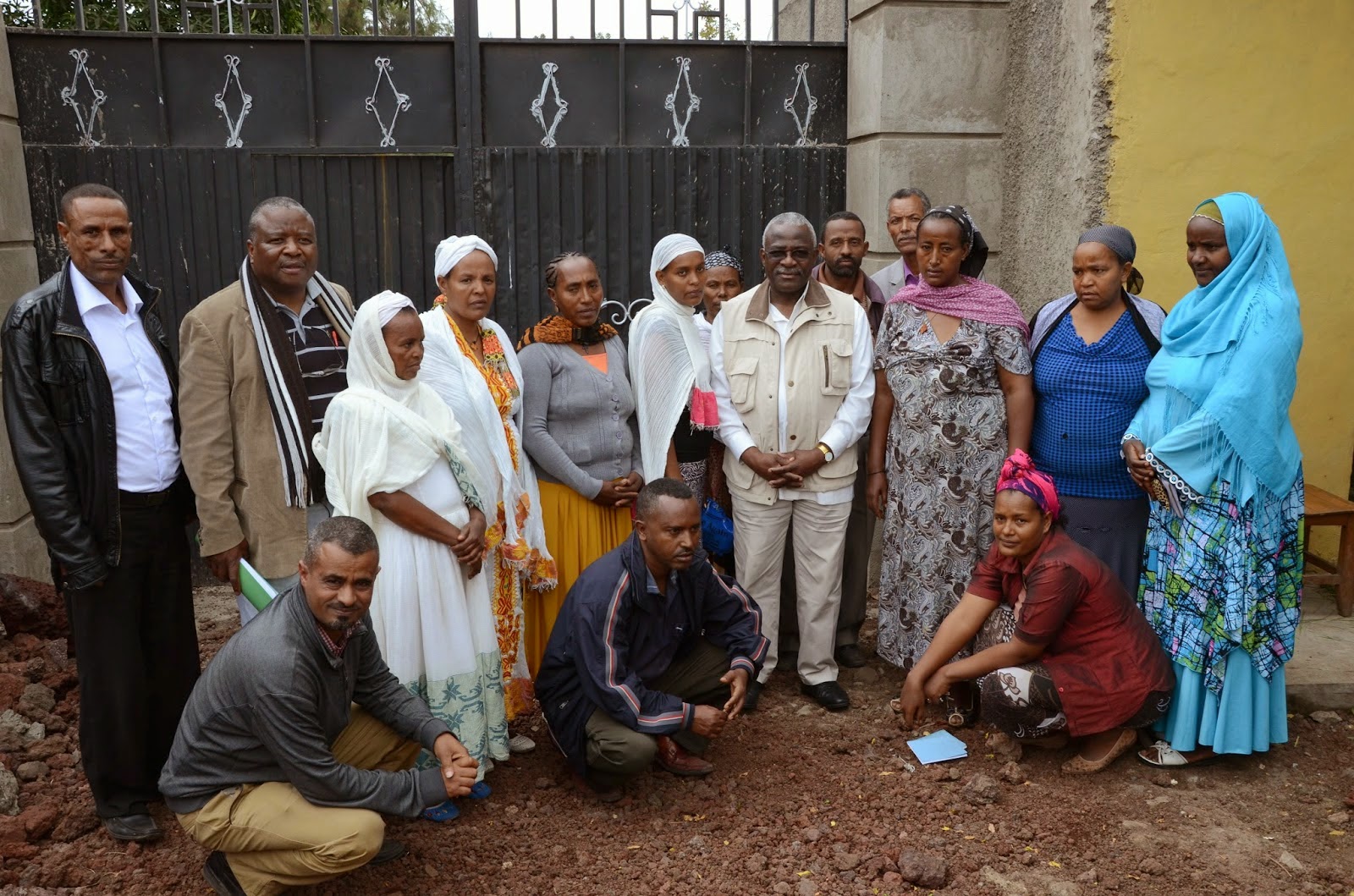 |
| IFAD President with members of Edget Cooperative a register member of Yetsanet Fana Union supported by IFAD supported RUFIP in Butajira, Ethiopia. |
The IFAD President Kanayo F. Nwanze traveled to Ethiopia to make an inaugural opening speech on 3rd September 2014. During the opening speech he urged for investment in the agricultural sector as a means for economic growth to transform the lives of the rural poor and particularly engaging the youth; “Yes many African economies are growing strongly, but too often this is on the back of extractive industries that do not yield jobs and income for Africa’s poor and hungry,” he said.
The AGRF brought together 1,000 agriculture officials, farmers, entrepreneurs, scientists, civil society organizations and pioneers in agribusiness representing 60 countries to discuss how the African continent may successfully launch and sustain a Green Revolution. Closing the conference Former President of Ghana concluded that it was time for less talk and more action, “Africa is ready to catch up with the rest of the world,” he said. To pave a way forward H.E. Tumusiime remarked, “Discussions this week at AGRF are an important step towards the actions we must take collectively to accelerate agricultural transformation in Africa.”
 |
| The IFAD President Kanayo F. Nwanze at the IFAD exhibition stand with IFAD staff who participated in the African Green Revolution Forum. |
Members shared their personal experiences of taking loans to launch small enterprises and to develop their farming activities. Loans have been used to invest in activities such as, rearing small ruminates, to purchase inputs (seeds and fertilizers) for their farms and to launch dairy processing activities. The President commended their efforts, encouraging them to continue to invest with their business plans in mind, ensuring to better the livelihoods of their families.
The IFAD President also visited Bati Futo marketing group that was established by the Agricultural Marketing Improvement Programme. The project established the 150 member strong marketing group providing them with training on basic marketing. Members have been able to qualify for loans from OMO micro-finance institution (MFI) that is supported by the project credit fund. A majority of members took loans to purchase animal drawn cart or to purchase boxes to transport their produce, tomatoes, fruits and onions to the market. While discussing the challenges the farmers continue to face to access markets, he emphasized that IFAD hopes to focus its future investments in Ethiopia to create better access to markets and the lessons learned while implementing AMIP will contribute to strengthening future efforts.
 |
| The IFAD President Kanayo F. Nwanze addresses Bati Futo marketing cooperative members |
The final visit was to Arata Chufa, where the IFAD President viewed a Participatory Small Scale Irrigation Development Programme scheme. The IFAD President had the opportunity to discuss with farmers how they have managed to successfully market their produce from irrigated small-scale farms. The 100 hectare scheme established 14 years ago under IFAD supported Special Country Programme phase one is managed by a water user association of 324 members. The WUA, which is a registered irrigation cooperative serves as a platform to encourage beneficiaries to collaborate and jointly improve their farming practices, working together to overcome hurdles they face while adapt irrigation technologies.
 |
| Melake Zige the Chairperson of Arata Chufa water user association (r) discusses their annual work plan and expected profits from the irrigation scheme with the IFAD President Kanayo F. Nwanze (c) |




